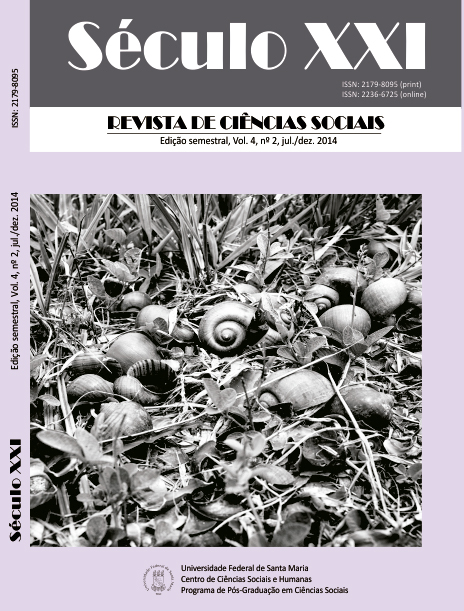Governmentality, depathologization and (de) medicalization. Questions on the law of gender identity Argentina (2011-2014)
DOI:
https://doi.org/10.5902/2236672517034Keywords:
pathologization, medicalization, gender identity, rights, citizenshipAbstract
This article focuses on tensions related to pathologization and depathologization as well as to medicalization and demedicalization brought up by recent Argentina’s Gender Identity Law (Law No. 26.743/12). In May 2012, the Argentine National Congress approved the Gender Identity Law which regulates the change of name and sex of people whose gender expression does not agree with the one legally registered. Moreover, the law includes in the public health program the provision of hormone treatment and surgical intervention. In this article we inquire into the political and institutional discourses that circulated during parliamentary discussion of the Gender Identity Law during 2011 and 2012. Focusing on recent global mutations in contemporary biopolitics and in bodies and subject’s technologies of government, this article explores the scope and effects of medicalization of gender identity. Hence, it inquires about the different discourses that lead to the approval of this national law regarding the fact that it disposes the free and universal access to medical technologies bodily transformation and that it is supported by the notion of human right to gender identity. Verbatim transcriptions of the debates developed in the House of Representatives and Senate are analyzed using the qualitative content analysis technique. Within this perspective, the meanings towards different notions of medicalization, pathologization, natural and normal are addressed.Downloads
Downloads
Published
How to Cite
Issue
Section
License
Authors who publish in this journal agree with the following terms:
1. Authors keep the copyrights and allow the journal the right of first publishing, having the paper simultaneously licensed by Creative Commons Attribution License that allows the sharing of the article – copyright recognized - and first publishing in this journal.
2. The journal is allowed to require the copyrights transfer, allowing the article to be used under noncommercial purposes, including the right to send the paper to Free Access or Paid databanks, not assuming the obligation to pass on the value charged from users to the authors.
3. Authors are allowed to take additional contracts separately for nonexclusive distribution of the paper’s version published in this journal (e.g. publishing in institutional repository or as book chapter), recognizing the copyright and first publishing in this journal.







